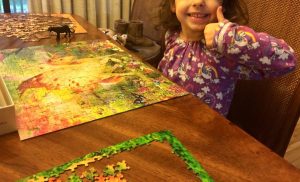 Story after story about Olympic athletes mentioned their perseverance. The skill of perseverance is important for kids too, even our very young ones.
Story after story about Olympic athletes mentioned their perseverance. The skill of perseverance is important for kids too, even our very young ones.
We can think of perseverance as the effort or self-push to get through challenges. Sometimes, this is also called grit. Usually, there is a reason, an outcome or something we want to motivate our perseverance.
In the case of one Olympic athlete, there was no hope of a medal left at all. Despite that, Jeffrey Julmis persevered and completed the race. Julmis from Haiti crashed at the first hurdle. By the time he untangled himself, he was underneath the second hurdle. He got back on his feet, regained his balance and composure, and jumped over all the hurdles left. He came in last but he finished his task instead of quitting even though he couldn’t win.
Babies show immense determination and perseverance. They fall countless times when learning to walk but get back up and try again. Making sense of the world around them uses this same skill. Bright Horizons Family Solutions shares some tips on helping kids develop and keep perseverance:
- Of course, kids need to see us, their parents and caregivers, and other adults keep going despite hardships.
- As kids play and tackle chores, we can set them up for success by including activities that are appropriate for them. Doing a 7-piece puzzle is okay for a toddler, but too easy for an older child. A puzzle of 100 or more pieces is much more difficult for kids–and grownups.
- Our words of encouragement are important. We need to recognize effort not just achievement and let kids know it’s okay to have struggles and get frustrated. This is a good reminder for us as adults too.

Perseverance is important for kids, so much so when kids do get to school, perseverance can trump IQ. Life is full of challenges and new things to try. Kids who have practiced this at home are farther along the track than kids who haven’t. Maybe we could say, unlike Jeffrey Julmis, they have already cleared some of the early hurdles?
